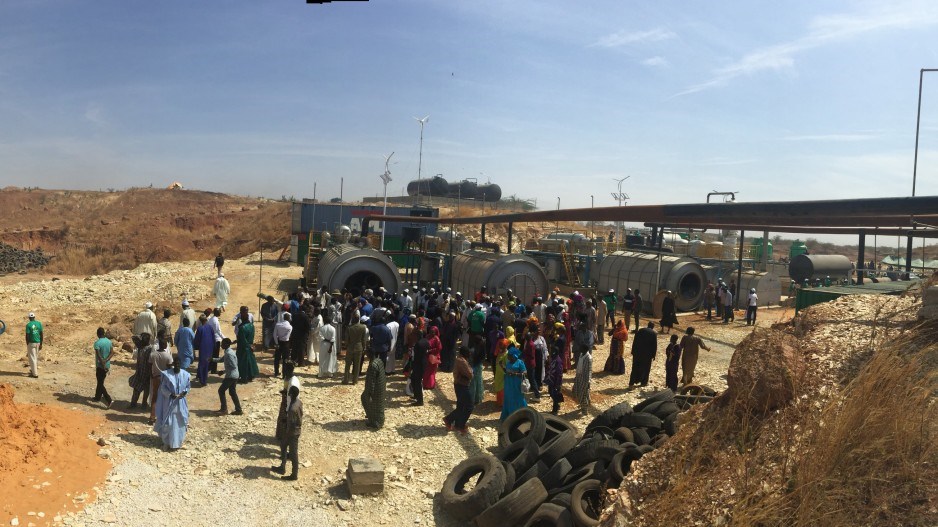Goldcorp Inc. (TSX:G) chairman Ian Telfer was in Senegal recently for the grand opening of one of his latest investments.
It wasn’t a new gold mine, however, but a waste-to-energy plant that takes tires and plastics and turns them into fuel in the township of Nguekokh.
The project was the brainchild of Vancouver businessman Stephen Jenkins and was built and financed entirely by B.C. business people. The $1.8 million plant was designed and built by Vancouver engineering design firm Balanced Power Engineering Inc., which is also an investor in the project.
Balanced Power used to work mostly with pulp and paper mills, and still has clients in that industry, but over the last decade it has changed its focus.
“In the last 10 years we’ve pushed hard on the renewable energy,” said Balanced Power president Todd Walter.
Jenkins is the founder of a social enterprise called Energies Du Futur, which is working to develop renewable energy projects in West Africa. The new waste-to-energy plant in Senegal, which was officially opened on January 31, is the first of six projects Jenkins is trying to build. A second phase will be a wind and solar energy project.
Jenkins knew Walter’s company from his years working in the forestry sector and asked him to take on the engineering. Walter and his partner, Don Neal, took an equity stake in the project.
“Without the great engineering expertise and input from Todd and Don at Balanced, the project probably would have died on the vine,” Jenkins told Business in Vancouver.
The plant uses plastics and tires as feedstock to produce a variety of diesel fuels through pyrolysis, a process that breaks up polymers at high temperatures. It can process up to 1,500 tires per day and produce up to 15,000 litres of fuel oil – which raises the question: does Senegal really have that many old tires lying around? Sadly, the answer is yes, Walter said.
“There are that many waste tires,” he said. “By our estimates, we’ve got a 15-year supply. They’re stacked up on the sides of roads everywhere you go. If you go outside of town a little ways, you’ll find gullies. These will be completely full of tires.”
There is a lot of waste plastic around too. Local villagers are paid $15 per tonne to bring plastics and tires to the plant, which employs 40 people.
To finance the project, Jenkins called on Telfer and other friends in B.C. to become investors to raise the $1.8 million needed to build the plant. The township of Nguekokh donated the land for a 5% equity stake in the project.
Walter said Energies Du Futur decided to build out the various renewable energy projects in stages, rather than try to tackle it all in one go.
“If you decided you were going to build an entire energy centre, and you said, ‘I’m going to put in wind, I’m going to put in solar, I’m going to put in anaerobic digestion, I’m going to put in pyrolysis,’ it would take you five years to get this off the ground with all the financing and engineering.
“So our approach was just completely different. It was: Let’s find one we can get up and running in 12 months. Get the cash flow; once you get the cash flow the investors get really excited.”
None of the investors expect the project will be a big money-maker – that’s not the point – but they do expect it to pay for itself.
Telfer said he liked the project because it addresses an environmental problem, provides local jobs and produces a marketable product that can make the enterprise self-sustaining.
“The only thing they need more than energy in West Africa are jobs,” Telfer said. “And like so many of these places, they have garbage and plastic and tires – more than they can handle. This has the potential to be … self-sustaining and also has the potential to expand into other parts of Africa.”




